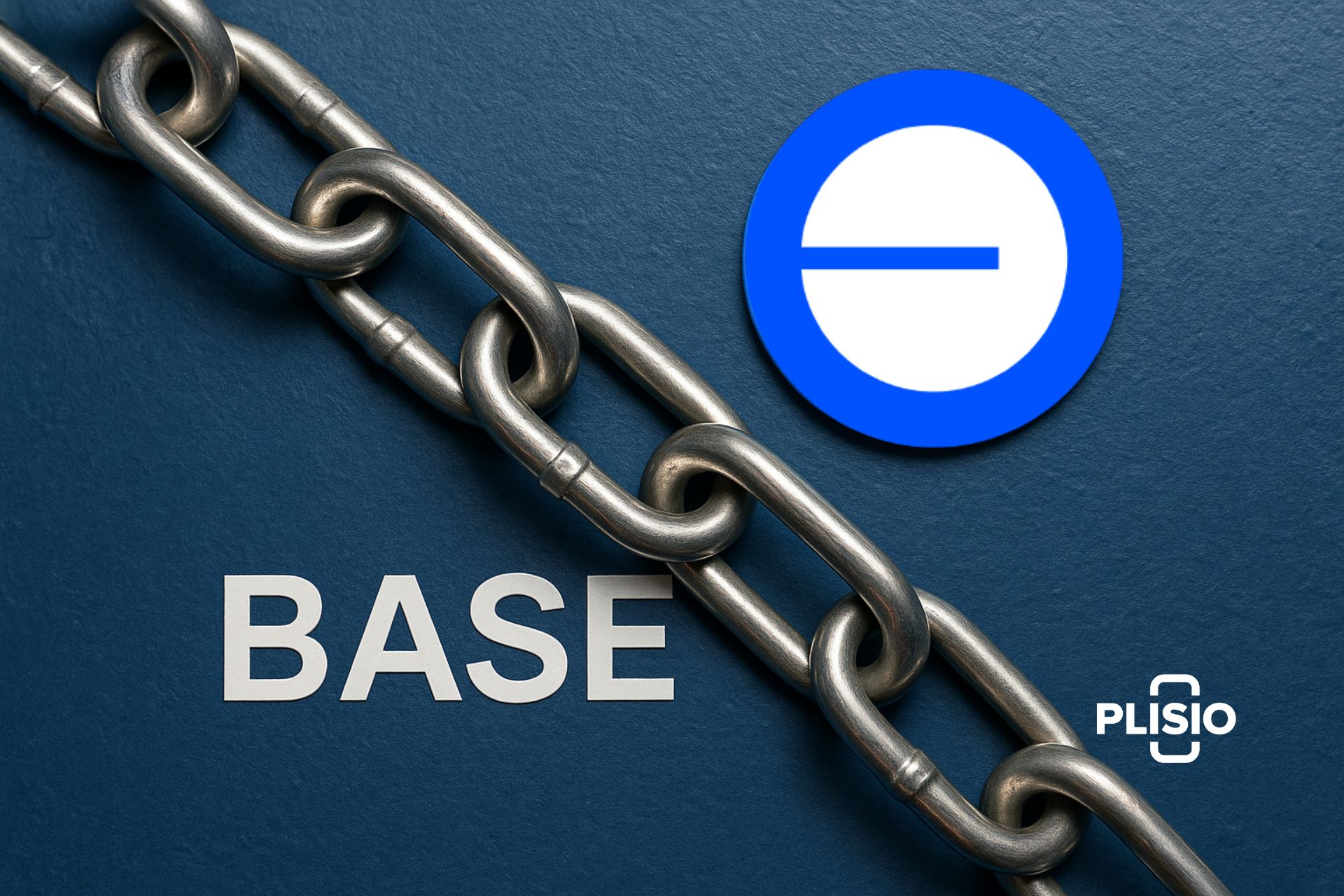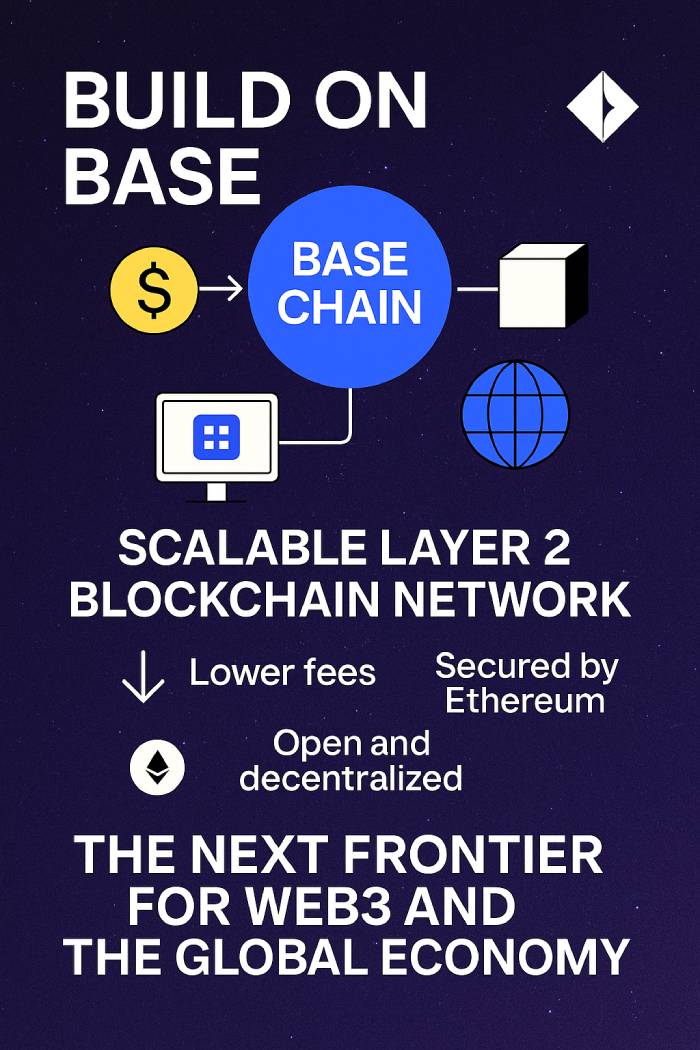Coinbase’s BASE Chain: The Global Blockchain Frontier

Coinbase’s BASE chain has shaken the blockchain economy, much like a sudden block appearing in a clear chain. One day, everything in the ETH ecosystem seemed steady; the next, a new Layer 2 (L2) network launched, bringing fresh opportunities and new risks for every user, creator, and investor dealing with their coins.
To stay ahead in the fast-moving global blockchain economy, Brian Armstrong and the Coinbase team introduced the BASE chain — a builder-friendly, low-cost platform aiming to connect the next billion users to onchain decentralized finance (DeFi). With its launch, the BASE network quickly gained traction among developers, app builders, and the global blockchain community.
So, what sets the BASE chain apart from other Layer 2 networks in terms of coin management? Why should anyone building or using blockchain infrastructure pay attention to the development of new protocols like Optimism?
Coinbase built the BASE chain to satisfy the need for blockchain systems that are safe, easy to use, and can grow. This means that customers can safely deal with their money. It affects the way we think about smart contracts, payment systems, and resolving debts. This helps dApps, wallets, and DeFi protocols grow.
It's getting harder to send money as Ethereum becomes more popular. This is because of things like L1 congestion, expensive gas fees, and slow transactions. BASE is a network that fills in these gaps by letting people trade without paying any fees, settling them safely on Ethereum's mainnet, and working with the Ethereum Virtual Machine (EVM) in every way.
BASE Chain Overview: Building the Next Global Blockchain Economy
The BASE chain is an Ethereum Layer 2 blockchain built using Optimism’s OP Stack. It improves scalability, reduces transaction costs, and speeds up settlement without sacrificing security. Through its decentralized model, the network supports apps ranging from DeFi exchanges to NFT marketplaces, games, and global payment solutions.
Launched on August 9, 2023, BASE combines Coinbase’s trusted infrastructure with Optimism’s proven technology to deliver a robust, builder-friendly environment. Transactions are processed off-chain in batches (using optimistic rollups) and finalized on Ethereum’s L1, reducing congestion and gas costs for transferring coins.

How the BASE Chain Network Processes Transactions
- Transaction Processing:BASE batches multiple transactions into a single block, submitting it to Ethereum for validation, lowering fees and maintaining security for users' coins.
- OP Stack Protocol: The OP Stack Protocol is a cornerstone of the BASE chain, facilitating efficient development and operation, allowing developers to create applications that handle various coins.By leveraging the OP Stack, the network assumes transactions are valid unless challenged, streamlining throughput.
- EVM and Tool Compatibility: The integration of the BASE chain with existing EVM tools ensures compatibility and ease of development.Developers can build or migrate smart contracts, apps, and protocols directly, using standard Ethereum tools and Solidity code.
- Security Model: The security model of the BASE chain is designed to protect users' coins effectively.BASE inherits Ethereum’s security guarantees while adding Coinbase’s governance and operational safeguards to protect users' coins.
- Asset Bridging:Users can deposit funds, bridge tokens like USDC, mint assets, and withdraw their coins back to L1 as needed.
BASE Network Benefits for the Global Blockchain Economy
- Scalability: The BASE chain enhances scalability, allowing for the efficient handling of millions of coins.Supports high transaction volumes and complex smart contract execution.
- Low Cost:Near-zero fees make it affordable for both microtransactions and large-scale projects.
- Global Access: The BASE chain aims to provide global access to various coins and tokens for all users.Opens the door for the next billion users to access DeFi, dApps, and payment systems, empowering them to manage their coins effectively.
- Developer Freedom: The base documentation provides developers with the freedom to innovate within the blockchain ecosystem, including the management of different coins.Builder-friendly environment with full EVM support.
- Security:Ethereum-backed settlement ensures strong decentralization and trust.
BASE Chain Pros
- EVM-compatible and easy to build on.
- Backed by Coinbase’s global reputation, the BASE chain aims to redefine the node infrastructure in the blockchain space.
- Low-cost transactions.
- Strong security through Ethereum and OP Stack.
BASE Chain Cons
- New chain — still proving its resilience in a competitive landscape dominated by established nodes and protocols, particularly in the management of users' coins.
- Competes with established L2 networks like Arbitrum and Polygon.
- Centralization concerns due to Coinbase’s role.
The BASE chain is more than just another Layer 2 network; it represents a significant move towards enhancing the blockchain ecosystem. It’s an evolving blockchain protocol, aiming to decentralize access, strengthen governance, and expand the global onchain economy — one block, one transaction, and one user at a time, while leveraging the power of Optimism.
Plisio and BASE Chain Support
Plisio now fully supports the BASE chain, allowing businesses and individuals to seamlessly work with ETH on BASE and USDC on BASE. Through Plisio’s infrastructure, users can build payment systems, connect wallets, and process onchain transactions quickly and securely, benefiting from the network’s low fees and scalability.
Conclusion: BASE’s Role in the Future of Blockchain
With its blend of scalability, low-cost transactions, and deep integration with Ethereum’s mainnet, the BASE chain is well-positioned to become a central hub for the next generation of blockchain apps, tokens, and DeFi protocols. By empowering developers to build, bridge assets like USDC, and offer secure wallet-based services to a global audience, BASE is not only addressing current infrastructure challenges but also shaping the decentralized economy of tomorrow. In the years ahead, its success will depend on how effectively it can maintain decentralization, attract creators, and deliver lasting value to both users and the broader blockchain ecosystem.




